Sixth Form Subjects

Chemistry
| Exam Board | OCR | Ask us a question | |
| Course Duration | Two Year, Full-Time | Apply | |
| Intake Date | September |
Course Overview
Chemistry is an exciting subject which investigates why different materials behave in different ways and how they can be turned into more useful substances.
The course aims to explain and put right the common misconceptions about chemicals in our world.
Course Content and Assessment
The OCR Chemistry B (Salters) specification has been designed so students study chemistry in a range of different contexts, conveying the excitement of contemporary chemistry. The learners study chemistry in a range of different areas throughout the two year course. Ideas are introduced in a spiral way with topics introduced in an early part of the course reinforced later. The methods of study place particular emphasis on an investigational and problem-solving approach to practical led learning to better prepare the students for onward study in chemistry and chemistry related subjects from Medicine to Engineering.
Features of the specification include:
- Ideas are introduced within a spiral curriculum structure - topics introduced in an early part of the course and reinforced later.
- The specification continues to place a particular emphasis on the development of practical skills and chemical literacy.
- Clearly identifies practical endorsement requirements and how these can be integrated into teaching of content.
Assessment breakdown:
Fundamentals of Chemistry (01) 110 Marks 2hrs 15mins 41% of the total A level graded outcome
Scientific literacy in Chemistry (02) 100 Marks 2hrs 15mins 37% of the total A level graded outcome
Practical Skills in Chemistry (03) 60 Marks 1hr 30mins 22% of the total A level graded outcome
Practical Skills Endorsement (04) Reported Separately 0% of the total A level graded outcome.
Summary of the content for the A level course is as follows:
Section 2c –
Development of practical skills in chemistry
- Practical skills assessed in a written examination
- Practical skills assessed in the practical endorsement
Section 2d – Storylines
- Elements of life
- Developing fuels
- Elements from the sea
- The ozone story
- What’s in a medicine?
- The chemical industry
- Polymers and life
- Oceans
- Developing metals
- Colour by design
Section 2e – Chemical literacy
Section 2e of the specification content relates to the chemical literacy skills learners are expected to gain throughout the course. These skills will be assessed throughout the written examinations. Learners will be expected to demonstrate the ability to extract and use data and information from sources, including those set in unfamiliar contexts.
Learning Methods
Practical activities are embedded within the learning outcomes in the teaching modules in Section 2d (Storylines). In Chemistry the application of knowledge is best seen when completing full experiments and in-depth study of the related theory. Opportunities for carrying out activities that could count towards the Practical Endorsement are used throughout the delivery of the course.
Future Pathways
 POSSIBLE Careeer Pathways
POSSIBLE Careeer Pathways
Chemistrystudents can progress to higher education courses in Medicine and then get jobs as:
1. Generalist medical practitioners
2. Specialist medical practitioners
3. Biochemists and biomedical scientists
4. Chemical Engineering
5. Other researchers, unspecified discipline
6. Higher education teaching professionals
7. Biological scientists
8. Physiotherapists
9. Natural and social science professionals
10. Social and humanities scientists
Entry Requirements
Combined Science GCSE or chemistry grade 6, and another science at grade 6 (Physics or Biology)
Student Testimonial
Testimonial in the pipeline
Other courses of interest
- Biology
- Physics
- Psychology





